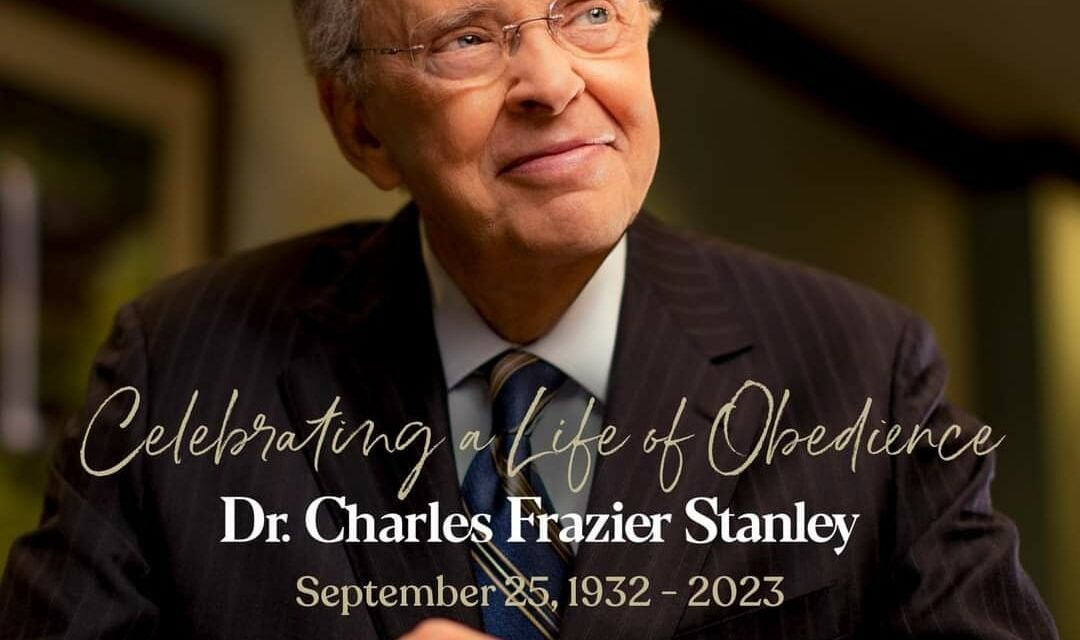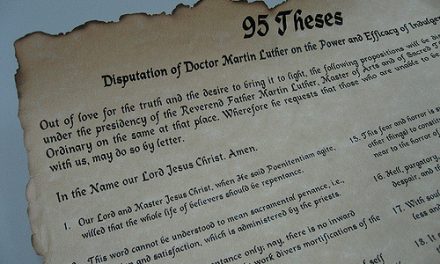The testimonies about ‘golden mouthed’ preachers from Chrysostom and Augustine[1] to John Wesley, Billy Graham, Apostle Ayodele Babalola, Patriarch Professor Bolaji Idowu, and Charles Stanley, among others, warn us of ‘double-tongued’ preachers today (1 Tim. 3:8). The lamentation of John Wesley towards the end of his earthly ministry at age 87 to Alexander Mather on August 6, 1777, on the danger of ruin to Methodism resonated with the need for faithful preaching in the Christian Church today. According to Wesley, “Our preachers, many of them, are fallen. They are not spiritual. They are not alive to God,” hence the shameful departure from the authority of God’s Word today. Charles Stanley remains a model of ‘one hundred preachers who fear nothing but sin and desire nothing but God, and I care not a straw whether they be clergymen or laymen, such alone will shake the gates of hell and set up the kingdom of heaven upon earth.” As Christian preaching waned, especially in an age of nominal and ‘religionless Christianity,’ the death of Stanley brings to focus the need for revival of preaching, a call from juvenility to maturity of faith and preachers in a culture of declining biblical literacy. [2]
John Stott aptly described a Christian preacher as a steward of Jesus Christ and steward of the mysteries of God to whom have been entrusted the Holy Scriptures requires them to be found holy and trustworthy (1 Cor 4: 1-2). Christian preaching is the holy proclamation and hard work “… entrusted with a commission … Necessity is laid upon me. Woe to me if I do not preach the gospel” (1 Cor 9:16, 17). Martyn Lloyd-John, in his book Preaching and Preacher, points to the primacy and urgent need for faithful preaching. [ 3]
Long-time First Baptist Church of Atlanta pastor Stanley built an evangelical broadcast empire and remains a model of biblical Christian preacher for us today. Over five decades, Stanley’s vision for the church was “to touch the world with the Word of God, motivated by a passion for God and compassion for people.” Stanley’s life as a Christian preacher was grounded in intimacy with Jesus, obedience to God, and God’s Word as an immovable anchor to him in his times of storm and joy. As a Christian preacher and teacher at Fruitland Baptist Bible Institute near Hendersonville, N.C., Stanley’s awareness of God’s presence energized him throughout his active, impactful ministry. However, being a biblical Christian preacher does not exempt one from dark moments. Stanley’s legacy reminds us that ‘the dark moments of our life will last only so long as is necessary for God to accomplish His purpose in us’ (James 1:2-4).
Christian preachers fight their battles on their knees to win every time; Stanley remains such a fighter, for we fight not against body and flesh but against powers and principalities in the highest places. Stanley, on his election in 1984 in Kansas City, Mo, said, “My election infuriated the opposition,” Stanley wrote in his 2016 autobiography, “Courageous Faith,” “and ultimately revealed many of the underlying problems that had existed in the convention for a long time but had either been ignored or denied. … All the liberal and moderate political forces of the Southern Baptist Convention were against me, which included seminary presidents and state convention newspapers … “I knew I was in the center of His will, so I never felt anxious or angry even when the conflicts were at their very worst.”
Christian preachers are good listeners, which is essential to walk with God. Biblical preacher like Charles knows that disappointments are inevitable, ‘discouragement is a choice.’ Walking in the Spirit remains an undeniable prerequisite for a biblical preacher to obey the initial promptings of the Spirit. Christian preacher is about allowing Jesus to live His life and through us for a deeper relationship, even with adversity as a bridge. Stanley, a Christian preacher, never backed down when defending the truth of Scripture before kings, queens, presidents, and dignitaries. Although, as a Christian preacher, Stanley ‘had well-defined political views, he largely stayed out of the partisan fray to avoid being distracted from his goal of taking the gospel to every place, people, and culture.’
Stanley, the founder of In Touch Ministries who once served as president of the Southern Baptist Convention, died at age 90 on Tuesday, April 11, 2023. Born September 25, 1932, in Dry Fork, Pittsylvania County, Virginia, Stanley lost his father early. He earned a Bachelor of Arts degree from the University of Richmond, a Bachelor of Divinity degree at Southwestern Theological Seminary, and a Master of Theology and Doctor of Theology at Luther Rice Seminary. In 1969, Stanley joined the staff at First Baptist Church in Atlanta, Georgia, and became senior pastor in 1971, holding the position until his retirement in September 2020. Charles founded a local Atlanta television program in 1972 called “The Chapel Hour” on two Atlanta TV stations and a radio station, expanded to Turner Broadcasting System- TBS, to Christian Broadcasting Network – CBN, which later became “In Touch with Dr. Charles Stanley.” The mission of the Touch Ministries” in1977. His vision is to “lead people worldwide into a growing relationship with Jesus Christ and to strengthen the local church.”
Stanley will always be remembered as a bible preacher who engaged in prayer as life’s most significant time saver, even in our valley experiences than on mountaintops. As a Christian preacher, Stanley remains a model of a preacher eager to anticipate the Lord’s return. Christian preaching is one of the most challenging assignments that demands everything of the preacher. Christian preaching is a declaration of war on the kingdom of darkness, and when Satan and his agents find someone who is diligently faithful to the ministry of prayer and the Word, he goes on the attack. Stanley’s steady, unmistakable resonant voice, bold conviction, and heartfelt empathy could translate profound theological truths into practical life principles. His insights were engaging enough for seminarians and scholars and yet simple enough for children to understand.
It is important to note that ‘Stanley’s personal life had been on public display, beginning when his wife Anna filed for divorce in 1993. After a period of reconciliation, a divorce ensued in 2000, after 44 years of marriage. Anna Stanley died in 2014 of pneumonia and other health issues at age 83.’ In September 2020, toward his 88th birthday, Stanley stepped down as ‘senior pastor of First Baptist Church Atlanta, taking the role of pastor emeritus.’ Stanley said to his congregation, “I have many wonderful memories. But as much as I love being your pastor, I know in my heart this season has come to an end.”
Stanley, with a global footprint, a paper boy delivering Good News, warns today’s preachers that if God calls them to preach the gospel, do not stoop along the way to become a king. Stanley reminds us about the preacher’s one business, which is preaching. The warning is that the prince of darkness will have you running here and there doing a thousand good little works to keep you from doing those two essential works: prayer and the ministry of the Word. [4]
[1] Clifford, Nigel, Christian Preachers (Mid Glam, Evangelical Press of Wales, 1994), pp. 7-27.
[2] Okegbile, Deji, Revival of Preaching: ‘Juvenility to Maturity of Faith and Preachers (London: SADL, 2018), pp, 11-17
[3] Lloyd-Jones, Martyn, Preaching and Preacher (London: Hodder and Stoughton, 2013), pp. 7-23
[4] Mawhinney, Bruce, Preaching with Freshness (Grand Rapids: MI, Kregel Publications, 1997), pp. 28-29.











Recent Comments